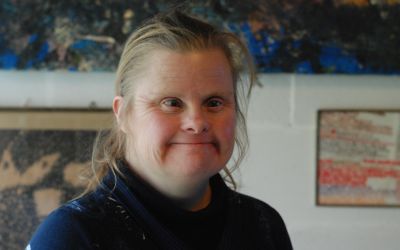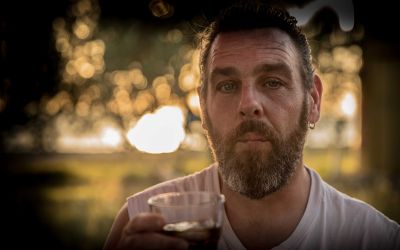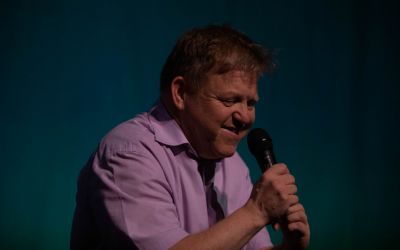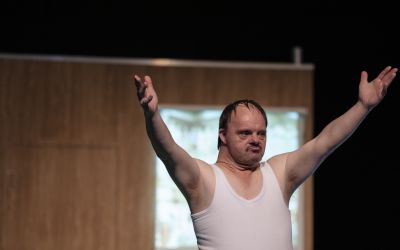Six black men and an Eskimo arrived at their new home. The door. A linoleum floor, a refrigerator. A table with six chairs. And a faucet. They received a bag from the people. Six black men and an Eskimo arrived at their new home with a plastic bag in their hands. Now what?
In the play, the Lorenz-reaction, coming from biology, is investigated. Animals that feel displaced and threatened, show reflexes that are against Nature. So it can occur that a bird, that doens't know where he is and sees that he is stalked by a cat, suddenly starts to shine his feathers. The cat jumps. Bites. The bird is dead.
A performance about people, who are lost en stand still untill they are found. About people, who brush their hairs when the ceiling comes falling down. About people, who start a new book when they don't know who they are anymore.
timeline
In the fall of 2002, 'Ergens staat er nu een iglo leeg' played an opening night in our own hall. Then, the play went on a tour in Flanders and The Netherlands and we performed 26 times. We played the last time on 'Theater aan Zee' where 'Theater Stap' was the central guest.
credits
Direction: Jetse Batelaan and Lotte van den Berg
Lighting: Lykle Hemminga
Scenery: Martin Mulder
Wardrobe: Liesbeth Swings
Photography: Kris De Witte
Cast: A
nn Dockx
Jan Goris
Kris Hufkens
Luc Loots
Nadine Van Miert
Annick Van Leeuwen
Rik Van Raak
press
De Scene 12/02 2002
'Ergens staat er nu een iglo leeg' tells numerous stories about lacking and exclusion with some absurdity. It tells a very special story of creation through fragments, images, songs and jokes. Furthermore the performance poses critical questions about our viewing habits.
De Morgen 12/02 2002
'Ergens staat er nu een iglo leeg' became a very modest performance based on only one question: what happens to people if they face a strange, unknown situation? It is very interesting to see how the Stap-players apparently effortlessly enter the dramatic language we know, for instance, from Batelaan, without it appearing forced. Seven free actors work in a rather rigidly directed dramatic concept.
















